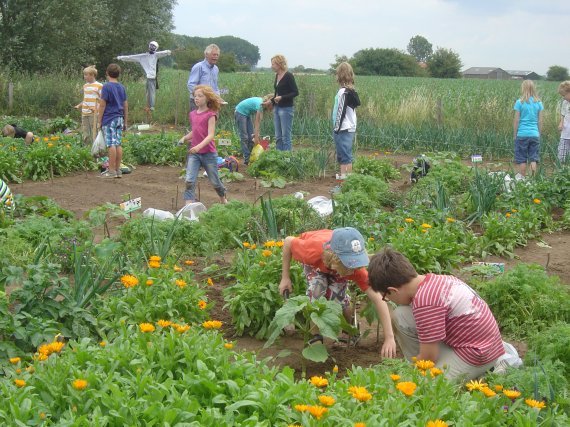Education and learning, according to Wals ‘are a somewhat neglected piece of the puzzle in addressing the sustainability challenge.’ The traditional natural sciences in our education system look at the how and the why of a phenomenon. The emphasis lies on knowledge and on deconstructing reality. But no matter how good we are at dividing the world up into disciplines, categories and sectors – smaller and smaller units – we are not good, says Wals, at seeing relationships, links and the whole picture. For an all-round understanding, you need several disciplines and angles, and above all new skills or competencies. Wals: ‘Competencies such as changing perspectives, the ability to switch between past, present and future, between here and there, and between different cultures. But we also need the ability to cope with uncertainty, complexity, relations, cycles, and interdisciplinary thinking.’
Push to sustain
Education should develop these new competencies. But, says Wals, this does not mean we should throw our traditional subjects overboard. Wals: ‘No, I don’t believe that. The point is that we should organize learning differently: starting with everyday challenges, looking for local solutions from a global perspective. Traditional subjects will still be important, but will no longer be the point of departure.
The push to consume is far bigger than the push to sustain. That must change
Arjen Wals
And that does not have to be complicated. Wals: ‘There are more and more examples of schools, neighbourhoods and suburbs which work on such issues through concrete projects. Take for example climate-neutral schools, sustainable neighbourhoods, roof gardens and edible school yards. ‘Sometimes they are working on those new competencies without realizing it.’ Education, says Wals, is now largely focused on increasing our competitive advantage and strengthening our economy. ‘The push to consume is far bigger than the push to sustain. That must change.’
Old mobile phone
Wals gets students in his classes to take old mobile phones apart. ‘To find out what material they are made of, where it comes from, under what conditions the raw materials are mined. I get them to look at ethical questions such as what a mobile phone like that does to our lives and our relationships. The whole world is in that mobile. And can we use it to make the world a better place? For example, by developing apps for monitoring air quality.’
Social media and ‘citizen science’ are important instruments, in Wals’s view, for bridging the gap between scientific education and environmental education. ‘As long as it is more than just a cheap way of collecting data, because it should be meaningful and capable of leading to local solutions for global problems.’
Wals wrote the article in Science after the publication of Research on Environmental Education, a hefty tome on the state of the art in sustainability education. The Wageningen professor was one of the editors of this standard work.

